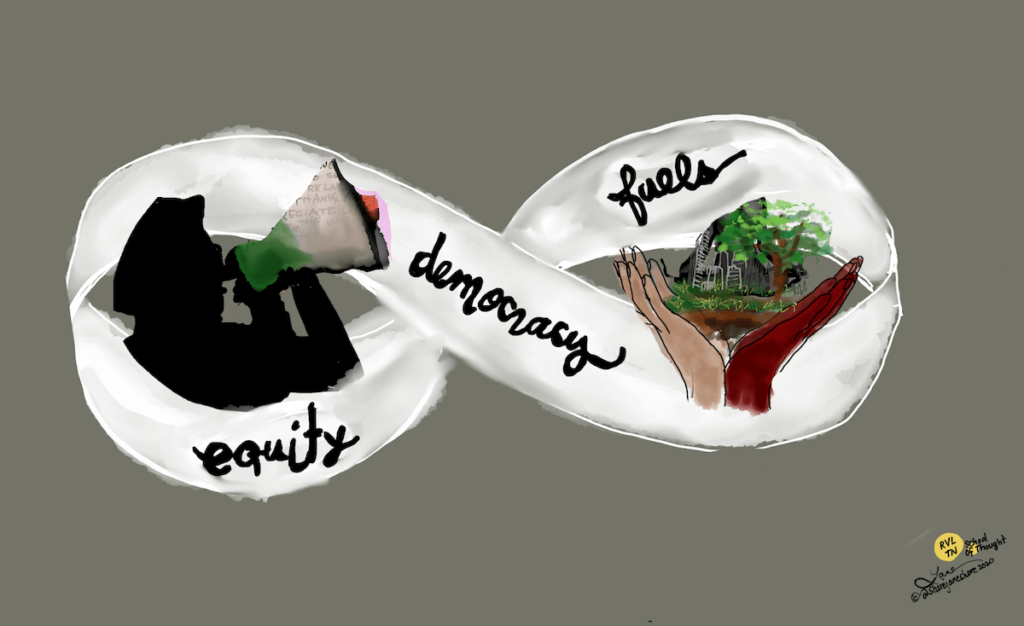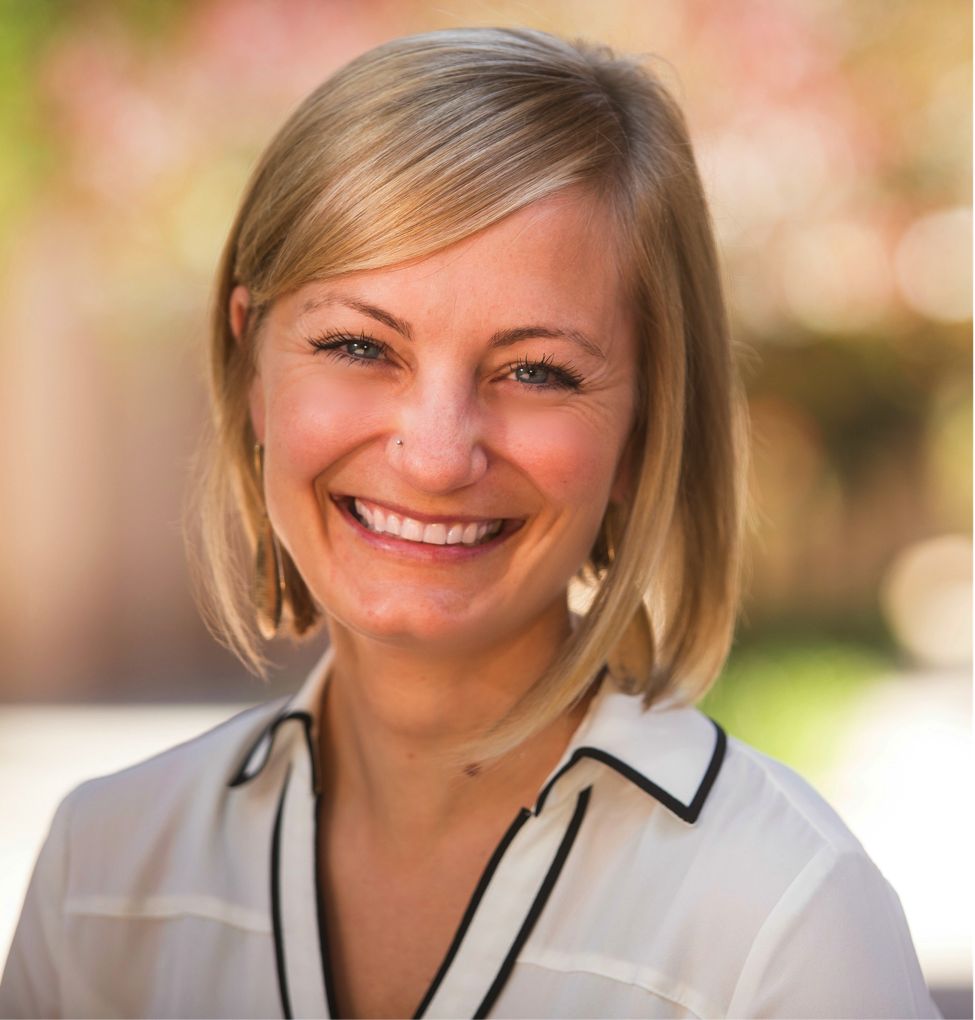Equity in Education: We Don’t Need To Level the Playing Field, We Need to Change the Game

There’s a lot of talk about “equity” in conversations about education these days.
And we need it. An over-focus on test scores, attainment, and limited outcomes has frightfully de-humanized schooling.
This is true for nearly all students, but this is especially true for students in poor, black, Latinx, and marginalized communities who have borne the brunt of punitive disciplinary policies, hours of mind-numbing test prep, under-qualified teachers, high staff turnover, and limited resources.
We need more equity, yet the way we frame education equity is often undermining our ability to actually do it well.
Almost always, educational equity is defined in terms of future socioeconomic or school attainment outcomes — think “college and career readiness,” “college for all”, “jobs of the future,” or even “Race to the Top”. These reforms all suggest we need to “level the playing field.”
Well-intentioned reformers, educators, and especially politicians have largely interpreted the facts that 1) there’s increasing economic inequality; and 2) higher educational attainment has been correlated with higher earnings; to mean that their primary job is to ensure students are prepared to compete in the increasingly unequal economic marketplace.
This makes a lot of sense at a local level. I want “my” kids to be the ones with higher educational attainment so they don’t end up at the bottom.
But at a systems level, there’s a major logical flaw. From a national point of view, they are ALL “our” children and if 50% of jobs don’t pay a living wage when they graduate, then 50% will not earn a living wage. [Insert any percentage here, I’m just using 50 as a placeholder.]
Even if schools succeed with every student — let’s say everyone can do differential calculus, has “grit”, and gets a Ph.D. — it doesn’t matter at a macro system level. If we maintain an economically unequal society, then many people won’t earn enough to support themselves and their families, regardless of how much skill or grit they have.
Framing equity in terms of competition, attainment, and social mobility pits our students against one another for supposedly scarce resources — if there are some who race to the “top” it’s to the detriment of those who stay at the bottom.
We have forgotten that schools do not create socioeconomic equity — our socioeconomic policies do.
When we frame the purpose of schooling as social mobility and educational equity in terms of competition, schooling does become a highly refined sorting mechanism but it does not solve issues of inequality.
We end up doing things that are short-term rational but long-term irrational in order to “win.” Things like focusing on graduation or attainment over quality, replacing teachers with computers, cheating on tests, spending ridiculous numbers of hours in testing, and cutting programs we know are good for child development (recess, art, music, and creative projects) if they don’t immediately increase test scores.
No one “wins” this competition. As I (and others) have written before, neither wealthy nor poor students are currently “winning”. Worse, this framing makes it harder to solve the real problems because we’re running around solving the wrong ones.
When we organize schooling for children to compete in an unequal economic system, it obscures and undermines the true role schooling could play in promoting social equity: ensuring all children can effectively and actively participate in a democracy.
It is through political equality that economic inequality is most likely to be addressed in a democracy.
If “politics is the process by which a society chooses the rules that will govern it,” then widespread participation in making the rules is key to ensuring they’re fair to everyone. This is the power of democracy — ensuring more people take part in determining the rules.
But there is a positive feedback loop between increasing economic inequality and increasing political inequality. Unfortunately, economic inequality has been rising in the U.S. since the 1970s, so it should come as no surprise that an increasing share of our elected officials are millionaires. And, it should also be no surprise that the rules they are making systematically discriminate against the already poor, and black, Latinx, and other minority or marginalized communities.
It’s not by accident the wealth gap has only grown over the past 40 years, it’s by policy.
Increasing economic inequality results in political inequality.
Schooling could be one of the most effective ways to interrupt that cycle. But only if school is organized for human development and democracy — not for competition.
In a democracy, social equity does not happen through better measuring of merit and more efficient sorting.
Social equity happens through a political process when enough people realize that an unjust society undermines everyone’s well-being and are willing to work together to ensure everyone’s basic needs are met and basic freedoms protected.
As citizens in a democracy, we should not be using schools as a proxy battleground for economic mobility by trying to equip kids to compete — it won’t work. We should be focused on engaging in our democratic processes to promote greater income and wealth equality, strengthen our social safety net, protect basic rights, and ensure our political processes are fair and representative.
And in schooling, we should be focused on true educational equity, rather than pursuing pseudo equity through competition.
But if we don’t reframe how we think about educational equity, we’ll never achieve it.
True educational equity is not about future test scores or graduation rates or wealth. True educational equity is not about the future at all — it’s about now — the environment and experiences students have that allow them to flourish today.
Designing school for true educational equity includes, but is not limited to: ensuring each child has a school that is safe – physically and psychologically; adults who care about them, value them as human beings and see their strengths; developmentally appropriate experiences in which they have sufficient time to play and create; an environment that is well-resourced for learning and exploration; and opportunities to practice the key skills and mindsets of democracy, like deliberation, perspective-taking, and collaboration in service of their communities. Read more on designing schools for human flourishing and thriving democracy.
True educational equity is not achieved when every child can compete within an unequal system — where they have an equal opportunity to end up in a few spaces on the top.
True educational equity is achieved when every child develops the knowledge, skills, character, and beliefs they need to reflect accurately on their world, make choices aligned with their values and preferences, and work with others through democratic processes to make the whole system more equal and equitable for all.
We don’t need to level the playing field so everyone can equally compete, we need to change the game — make sure our democracy works for all, and our schools work for our democracy.
For more, see:
- 100 Days of Conversation Project and The Importance of Community Agreements
- The Seeds of Opportunity in Crisis
- Designing Schools for Human Flourishing and Thriving Democracy
- The Students are Not the Problem: From Symptoms to Systems in Schooling
- Education Needs Less Critique, More Vision
Stay in-the-know with innovations in learning by signing up for the weekly Smart Update.







Andrew Frishman
Thank you for this provocative and insightful piece!
Tonya Whitaker
Playing catch up is problematic for students and teachers. Toss out re-teaching and after-school tutoring on concepts missed due to COVID. Let's start where students are and work forward. For this to be successful, the teaching game needs to change.
Helen
This conversation really changes the game and I welcome it! As a teacher and leader who has spent years striving for equity in education and been completely frustrated, I really appreciate the commonsense and human approach here. Thank you.
Nic Voge
This is a useful and powerful encapsulation of an approach I largely agree with: "True educational equity is achieved when every child develops the knowledge, skills, character, and beliefs they need to reflect accurately on their world, make choices aligned with their values and preferences, and work with others through democratic processes to make the whole system more equal and equitable for all."
However, I think there is an important tension in it. Like in my work, I strive to equip students to make aligned choices, however their values, preferences and choices frequently emanate from the currently pervasive neocon ideology that dehumanizes students, schools, and other institutions. Many students are not "outside" or even critical of this ideology, they have often internalized it without realizing it--like many adults. That's the way ideology works. So, many individual students are making these kinds of choices and those who attain the limited educational rewards of admission to elite colleges, for instance, often do so with the idea that they are creating greater equity by being in these spaces and that they will do so by diversifying academe, corporate America, etc. By this analysis, these students are choosing to play and excel at a game that is to the detriment of all but motivated by a desire for greater equity. Education, as you say, does not create equity, social policy does, but neither does education create hegemonic ideology that this formulation would seem to rest on.